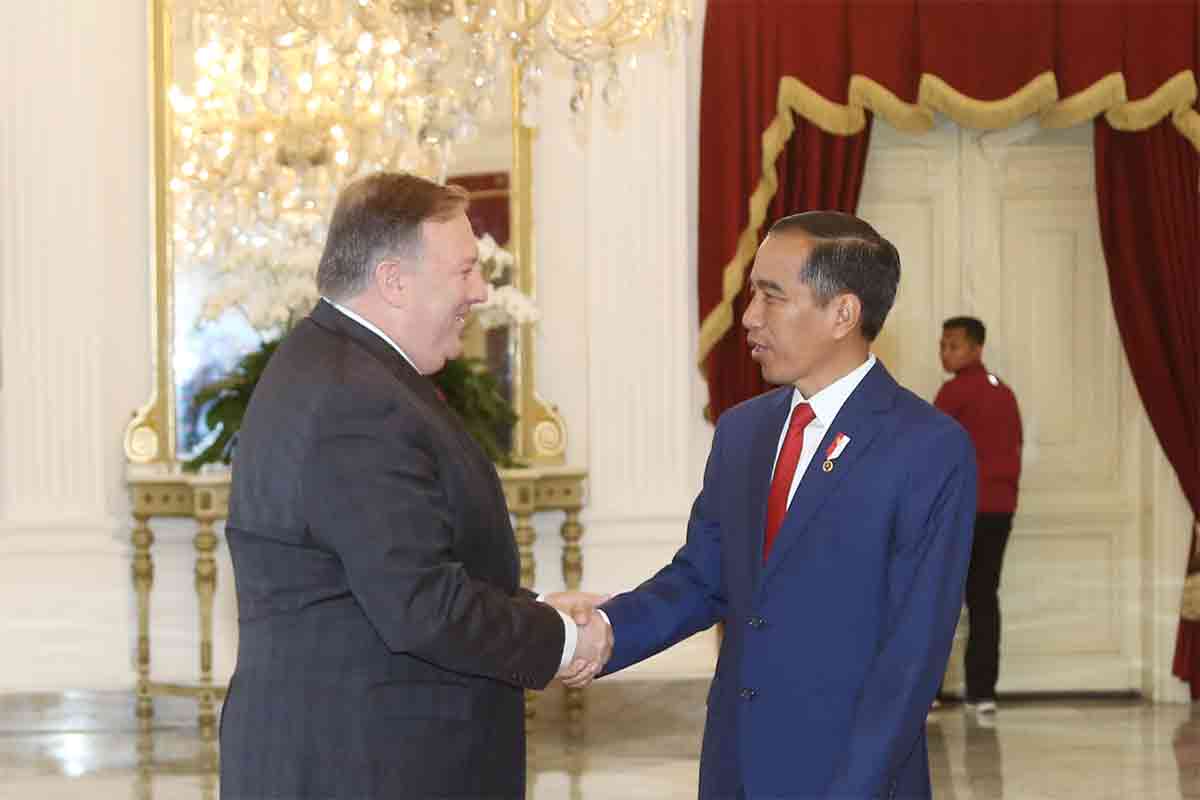For President Joko Widodo, the Indonesian economy is offering little cheer as he gears up to run for a second term.
Growth is nowhere near the seven percent Widodo envisioned when he took office in 2014, and he has to once again contend with a currency rout and a widening current-account deficit. Second-quarter gross domestic product data due Monday is unlikely to provide any solace with a survey pegging growth at 5.1 percent.
Time is running out for Widodo, known as Jokowi, to stimulate the economy as the presidential and parliamentary elections approach. He’s focused on shoring up foreign-exchange reserves to support a currency that’s weakened more than six percent this year amid a wider emerging-market rout and to counter charges by the opposition of economic mismanagement.
“It’s unlikely for the economy to take off and growth of five percent seems the most reasonable,” said Gareth Leather, senior Asia economist at Capital Economics Ltd. in London. “The sharp fall in the rupiah, the interest-rate hikes – these are going to weigh on demand and be a drag on the economy.”
The central bank has increased its benchmark rate by one percentage point since May to help stabilize the currency, a move that banks like Goldman Sachs Group Inc. say will curb growth.
But there are some bright spots emerging. Private consumption, which accounts for more than 55 percent of the gross domestic product (GDP), are showing signs of revival, according to Mohamed Faiz Nagutha, an economist at Bank of America Merrill Lynch in Singapore.
“There are some silver linings if you look hard enough,” Nagutha said. Spending is “expected to be sustained with a boost from the election season which kicked off with regional elections in mid-June,” he said.
PT Kalbe Farma, a pharmaceutical company, expects a recovery in purchasing power even as it remains wary of risks from the currency. The Association of Indonesia Automotive Industries is optimistic sales will rise to 1.1 million units this year from 1.08 million last year.
“We saw sales increase in terms of vehicles for commercial purposes,” Jongkie D. Sugiarto, co-chairman of the association, said in an interview. “It seems companies are in full operations again.”
Election campaign
The Asian Games and the International Monetary Fund (IMF) annual meetings, which Indonesia is hosting later this year, are expected to boost tourism, Nagutha said. Investment will drive growth with the government likely to push for completion of major projects ahead of the elections in April, he said.
Jokowi will begin campaigning for a second five-year term next month, most likely against Prabowo Subianto, chairman of Indonesia’s main opposition party Gerindra whom he defeated in 2014.
Boosting manufacturing can help trim imports of raw materials and improve the current-account deficit, according to Josua Pardede, an economist with PT Bank Permata in Jakarta.
“We need to create jobs to boost consumption,” Pardede said. “The government can do that by boosting labour-intensive industries. Industries such as manufacturing and agriculture are able to absorb many workers.” - Bloomberg
